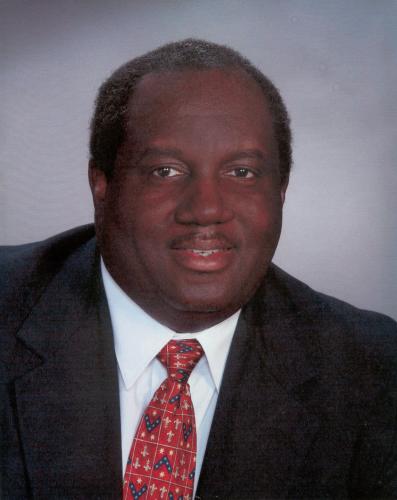
John Freeman Speech
 NEW ORLEANS, PARTNERS IN PHILANTHROPY KATRINA @ 5
NEW ORLEANS, PARTNERS IN PHILANTHROPY KATRINA @ 5
MARCH 22-24, 2010
Marriott New Orleans
Good evening. Thanks for the opportunity to address you today.
The discussion on LPFM and its transition into the importance of a community’s function and aspiration is worth consideration and contemplation.
The current functionality of LPFM radio on a community has had an impact of enormous consequences and importance.
I will briefly address the transitional impact of the Opelousas LPFM radio station on a contrasting historical perspective utilizing Hurricane Katrina’s displaced residence migration from New Orleans to Opelousas and how the Opelousas LPFM supported the Katrina families affected by this mammoth disaster. And finally, I’ll describe the need to support and encourage the expansion of LPFMs in the U.S.
From this historical perspective two contrasting Katrina historical road maps from New Orleans to Opelousas sets this template for the LPFM radio’s significance in a community.
Hurricane Katrina 2005 killed more than 1800 people, destroyed 200,000 homes and displaced 1.2 million Gulf Coast residences. In the mayhem a small unassuming LPFM radio station stayed awake, sounding the alarm neighbor to neighbor on a local Low Powered community radio station.
In the year 1865; the road from New Orleans to Opelousas would have been closed to most Katrina victims given that following the abolition of slavery, blacks could not live in the city, they required a pass to enter the city and had to leave the city by 10 p.m. on weekdays and 3 p.m. on Sundays or unless authorized by a white resident. These ordinances were enforced by the torture and murder of hundreds of blacks after emancipation. FEAR! Opelousas, the once Confederate Capital of Louisiana and 2nd by New Orleans as the state capital under reconstruction developed a platform that would set for a long period the disfranchisement of an identified group of citizens, namely African Americans. Under these constructs the road for Katrina victims would have been tightly closed and no form of community radio, LPFM or other wise, had they existed, would have provided them the needed information required for survival.
Think for a moment, thousands of people migrating from New Orleans to Opelousas only to be turned back to nowhere, no food, no water, no medical care, no shelter and no form of communication. How would we have coin or classify this event?
In the year of 2005 the road from New Orleans to Opelousas was open and welcoming to Katrina victims following the storm. The city was open from Monday through Sunday, no pass was required and that was enforced by its economic growth patterns. Opelousas LPFM 103.7 was a major medium to provide information for food, shelter and medical support for victims of Katrina. When the national media refocused its attention to other matters, it was LPFM 103.7, the neighborhood community radio station, which provided short term and long term support to settle Katrina families. Today the city has grown because many Katrina families decided to settle in Opelousas. During the days when African Americans had to have a pass to enter the city of Opelousas the city’s current population is 64% African American.
The contrasting historical events demonstrate the evolution and transition of communities across the country. What is missing? The expansion of LPFMs! LPFMs are essential to support media democracy, provide local news, information, expanded points of view and a building block to bridge neighbor to neighbor collaboration and solidarity. Additionally, the cultural identity of a community is part of LPFM’s imbedded elements. LPMF is not the harmonized one package fits all template. But it is the reforestation of ideas and creativity.
Acadian cherishes regionalism; the Central Vertical Connections are Opelousas, Lafayette and New Iberia. Lafayette and Opelousas have an LPFM radio station. However, New Iberia does not. 38% of New Iberia’s population is African American. New Iberia has a state-legislated Development District in a minority community but miss information and the lack of an LPFM stifles its development and collaborations. Joe Lockwood here today, retired to New Iberia to help improve that community. Getting the word out is nearly impossible due to other special interests. They need an LPFM radio in that community.
Commercial radio has a basic objective, a good balance sheet and control of all the market. And whenever possible eliminate the competition. They have eliminated the frequency of the Opelousas LPFM radio station by hiring the best law firms in Washington D.C. to allocate KOCZ’s radio frequency. Following 27 years of incubating Zydeco music by Southern Development Foundation, the commercial advocates convinced the FCC that they were the ones influencing the Zydeco culture and desired to passionately to expand it. Their interest in a community is not culture - but rather how much capital they can suck out of it. That’s what they are designed to do; and that is why they exist.
By contrasting the historical and current transitions, I wanted to demonstrate that a form of communication existed in small town USA (Opelousas) that caused a dramatic and significant development in the lives and conscience rising in the minds of so many people. A community’s LPFM radio station can enhance a community. The LPFM is the enhancing element.
I pray that you, here today, leave with a sense of urgency and commitment to shape media democracy by supporting LPFMs. And should another major crisis arrive; we will be prepared.
Thank you.


